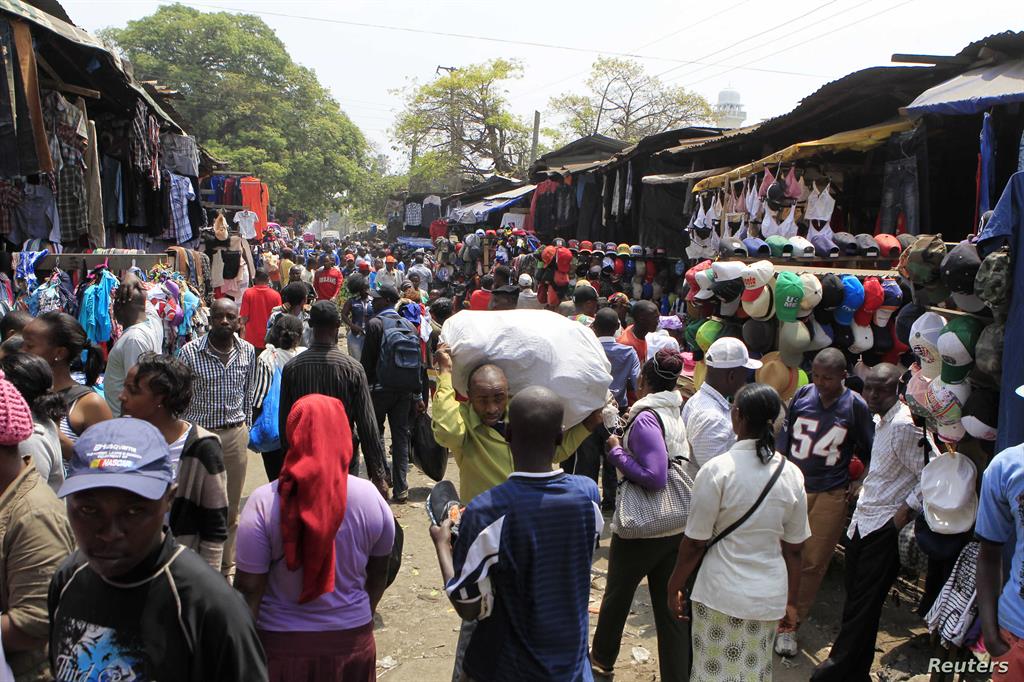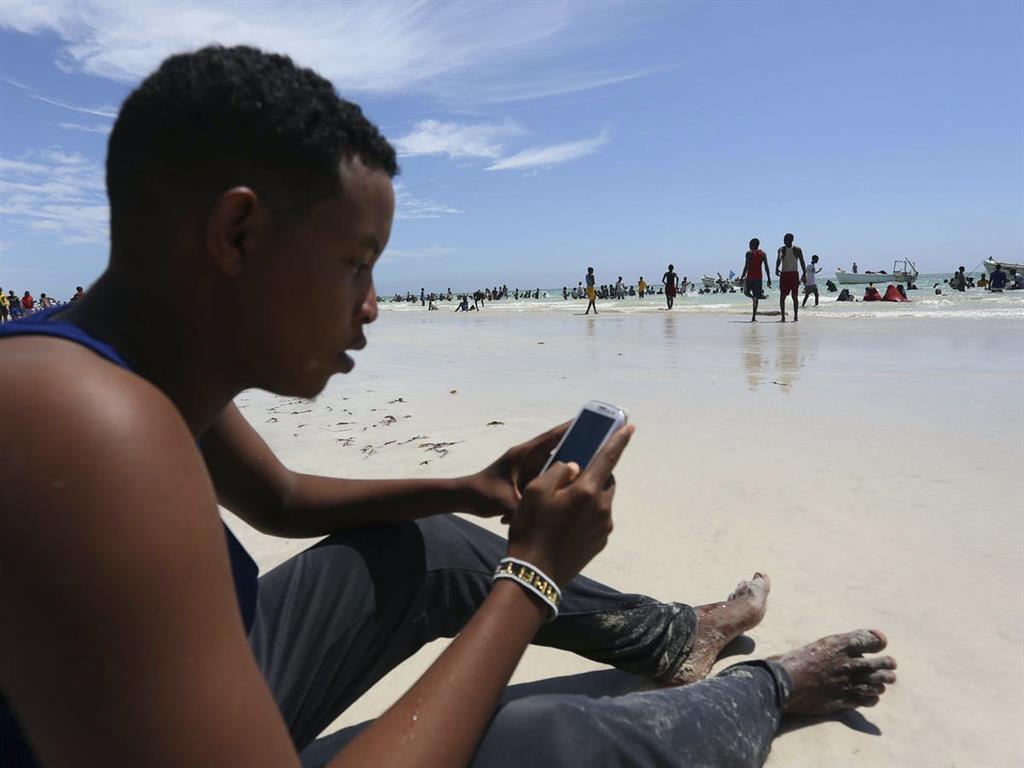Africa Briefs
Angola committed to market economy
Angolan president João Lourenço reiterated his government's commitment to establish and consolidate a society featuring the rule of law and a market economy.
Lourenço at a session of the board of governors of the International Fund for Agricultural Development (IFAD) said the Angolan government intends to diversify the national economy and change, in definitive terms, the economic structure of the country which is very dependent on oil resources.
Angola has developed several initiatives to improve the business environment to attract more direct local and foreign private investment, Lourenço said, underscoring the need to promote growth of the non-oil sector to create more jobs and increase income and well-being of its citizens.
The government is paying special attention to agriculture, agro-industry, fisheries, extractive and manufacturing industries, construction, tourism and other labour-intensive sectors.
"We are making a great effort to revitalise and develop agriculture in Angola, so that we can reduce our great dependence on food imports," he said. – Nampa/Xinhua
Kenya's economy to grow by 4.9%
Experts projected that Kenya's economy will grow by 4.9% in 2021 following the tactical easing of Covid-19 restrictions.
John Gachora, the managing director of the Kenya-based regional bank NCBA Group, said during a virtual meeting that the economy is estimated to have contracted in 2020 following a hard and broad-based hit on output in the second and third quarters due to the pandemic.
"However, looking ahead, there is a reason to be optimistic, the phased reopening of the economy has seen a return of about 80% of activity as consumer and labour mobility improves and supply chains are restored," said Gachora.
He said that the 57-billion shillings (US$520 million) post Covid-19 economic stimulus has helped restore activity in some sectors especially construction and minimised the negative effects on others, with positive gross domestic product (GDP) spillovers.
"To further repair the damages from the pandemic and avert a prolonged economic descent, it is essential that the Economic Recovery Strategy as proposed tactfully addresses the 'lives versus livelihoods' dilemma," said Gachora, calling for more efficiency in domestic resource mobilisation as well as debt management. – Nampa/Xinhua
Lagos unveils infrastructure plan
Authorities in Lagos, Nigeria's economic hub, has outlined key infrastructural plans for its development over the next decade.
Babajide Sanwo-Olu, state governor of Lagos, told the 8th Lagos Economic Summit that the race to digitise every community in Lagos has begun with the laying of 6 000 km fiber-optic infrastructure across the city.
He said when the smart city agenda is completed by 2030, Lagos would have full broadband internet coverage.
"By 2030, Lagos will be a smart city, fully covered by a network of several thousands of kilometres of fibre-optic infrastructure that will carry broadband internet into homes, offices, and schools," the governor said.
By the year 2030, he said, Lagos, which boasts the fifth largest economy in Africa, will have a city-wide network of color-coded metro lines that move over 34.5 million people monthly and cut travel time in the metropolis drastically. – Nampa/Xinhua
Tanzania punishes mobile operators
Tanzania's telecommunications regulator on Wednesday imposed fines amounting to 38.1 billion Tanzanian shillings (US$16 million) for what it described as poor delivery of services.
Tanzania Communications Regulatory Authority (TCRA) said in a statement that it had assessed the quality of telecommunications services in the last quarter of 2020 and found six mobile phone operators failed to meet certain required quality standards.
TCRA said it instructed the six phone operators - Airtel Tanzania Plc, MIC Tanzania Plc, Viettel Tanzania Plc, Vodacom Tanzania Plc, Zanzibar Telecom Plc and state-run TTCL Corporation - to use the fines by investing toward improving their service delivery quality within 90 days, adding that the instructions were agreed by the companies by signing contracts with TCRA.
The statement said any mobile phone operator that breached TCRA's directive on improving their service delivery will face legal action.
The assessment was based on network availability, call connection failure rate, call drop rate, call setup time, service coverage and call success rate. – Nampa/Xinhua
Angolan president João Lourenço reiterated his government's commitment to establish and consolidate a society featuring the rule of law and a market economy.
Lourenço at a session of the board of governors of the International Fund for Agricultural Development (IFAD) said the Angolan government intends to diversify the national economy and change, in definitive terms, the economic structure of the country which is very dependent on oil resources.
Angola has developed several initiatives to improve the business environment to attract more direct local and foreign private investment, Lourenço said, underscoring the need to promote growth of the non-oil sector to create more jobs and increase income and well-being of its citizens.
The government is paying special attention to agriculture, agro-industry, fisheries, extractive and manufacturing industries, construction, tourism and other labour-intensive sectors.
"We are making a great effort to revitalise and develop agriculture in Angola, so that we can reduce our great dependence on food imports," he said. – Nampa/Xinhua
Kenya's economy to grow by 4.9%
Experts projected that Kenya's economy will grow by 4.9% in 2021 following the tactical easing of Covid-19 restrictions.
John Gachora, the managing director of the Kenya-based regional bank NCBA Group, said during a virtual meeting that the economy is estimated to have contracted in 2020 following a hard and broad-based hit on output in the second and third quarters due to the pandemic.
"However, looking ahead, there is a reason to be optimistic, the phased reopening of the economy has seen a return of about 80% of activity as consumer and labour mobility improves and supply chains are restored," said Gachora.
He said that the 57-billion shillings (US$520 million) post Covid-19 economic stimulus has helped restore activity in some sectors especially construction and minimised the negative effects on others, with positive gross domestic product (GDP) spillovers.
"To further repair the damages from the pandemic and avert a prolonged economic descent, it is essential that the Economic Recovery Strategy as proposed tactfully addresses the 'lives versus livelihoods' dilemma," said Gachora, calling for more efficiency in domestic resource mobilisation as well as debt management. – Nampa/Xinhua
Lagos unveils infrastructure plan
Authorities in Lagos, Nigeria's economic hub, has outlined key infrastructural plans for its development over the next decade.
Babajide Sanwo-Olu, state governor of Lagos, told the 8th Lagos Economic Summit that the race to digitise every community in Lagos has begun with the laying of 6 000 km fiber-optic infrastructure across the city.
He said when the smart city agenda is completed by 2030, Lagos would have full broadband internet coverage.
"By 2030, Lagos will be a smart city, fully covered by a network of several thousands of kilometres of fibre-optic infrastructure that will carry broadband internet into homes, offices, and schools," the governor said.
By the year 2030, he said, Lagos, which boasts the fifth largest economy in Africa, will have a city-wide network of color-coded metro lines that move over 34.5 million people monthly and cut travel time in the metropolis drastically. – Nampa/Xinhua
Tanzania punishes mobile operators
Tanzania's telecommunications regulator on Wednesday imposed fines amounting to 38.1 billion Tanzanian shillings (US$16 million) for what it described as poor delivery of services.
Tanzania Communications Regulatory Authority (TCRA) said in a statement that it had assessed the quality of telecommunications services in the last quarter of 2020 and found six mobile phone operators failed to meet certain required quality standards.
TCRA said it instructed the six phone operators - Airtel Tanzania Plc, MIC Tanzania Plc, Viettel Tanzania Plc, Vodacom Tanzania Plc, Zanzibar Telecom Plc and state-run TTCL Corporation - to use the fines by investing toward improving their service delivery quality within 90 days, adding that the instructions were agreed by the companies by signing contracts with TCRA.
The statement said any mobile phone operator that breached TCRA's directive on improving their service delivery will face legal action.
The assessment was based on network availability, call connection failure rate, call drop rate, call setup time, service coverage and call success rate. – Nampa/Xinhua







Kommentaar
Republikein
Geen kommentaar is op hierdie artikel gelaat nie